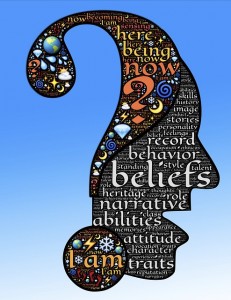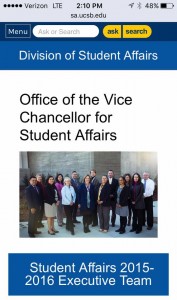I’d rather focus on my strengths than dwell on my weaknesses. It’s this personal trait/attitude I find personality assessments like StrengthsFinder appealing when it comes to learning more about myself. Recently, I took the survey as part of my organization’s effort to strengthen our abilities to collaborate and towards a better working community. Here are my top 5 signature themes.
Achiever. Your Achiever theme helps explain your drive. Achiever describes a constant need for achievement. You feel as if every day starts at zero. By the end of the day, you must achieve something tangible to feel good about yourself. And by “every day,” you mean every single day—workdays, weekends, vacations. No matter how much you feel, you deserve a day of rest; if the day passes without some form of achievement, no matter how small, you will feel dissatisfied. You have an internal fire burning inside you. It pushes you to do more, to achieve more. After each accomplishment is reached, the fire dwindles for a moment, but very soon, it rekindles itself, forcing you toward the next accomplishment. Your relentless need for achievement might not be logical. It might not even be focused. But it will always be with you. As an Achiever, you must learn to live with this whisper of discontent. It does have its benefits. It brings you the energy you need to work long hours without burning out. It is the jolt you can always count on to get you started on new tasks and challenges. The power supply causes you to set the pace and define the productivity levels for your workgroup. It is the theme that keeps you moving.
Maximizer. Excellence, not average, is your measure. Taking something from below average to slightly above average takes great effort and, in your opinion, is not very rewarding. Transforming something strong into something superb takes just as much effort but is much more thrilling. Strengths, whether yours or someone else’s, fascinate you. You search them out like a diver after pearls, watching for the telltale signs of strength. A glimpse of untutored excellence, rapid learning, a skill mastered without recourse to steps—all these are clues that a strength may be in play. And having found a strength, you feel compelled to nurture it, refine it, and stretch it toward excellence. You polish the pearl until it shines. This natural sorting of strengths means that others see you as discriminating. You choose to spend time with people who appreciate your particular strengths. Likewise, you are attracted to others who seem to have found and cultivated their own strengths. You tend to avoid those who want to fix you and make you well-rounded. You don’t want to spend your life bemoaning what you lack. Rather, you want to capitalize on the gifts you are blessed with. It’s more fun. It’s more productive. And, counterintuitively, it is more demanding.
Activator. “When can we start?” This is a recurring question in your life. You are impatient for action. You may concede that analysis has been used or that debate and discussion can occasionally yield valuable insights, but deep down, you know that only action is real. Only action can make things happen. Only action leads to performance. Once a decision is made, you can not act. Others may worry that “there are still some things we don’t know,” but this doesn’t seem to slow you. If the decision has been made to go across town, you know that the fastest way to get there is to go stoplight. You will not sit around waiting until all the lights have turned green.
Besides, in your view, action and thinking are not opposites. Guided by your Activator theme, you believe that action is the best learning device. You make a decision, take action, look at the result, and learn. This learning informs your next action and your next. How can you grow if you have nothing to react to? Well, you believe you can’t. You must put yourself out there. You must take the next step. It is the only way to keep your thinking fresh and informed. The bottom line is that you will be judged not by what you say or think but by what you get done. This does not frighten you. It pleases you.
Input. You are inquisitive. You collect things. You might collect information—words, facts, books, and quotations—or tangible objects such as butterflies, baseball cards, porcelain dolls, or sepia photographs. Whatever you collect, you collect it because it interests you. And yours is the kind of mind that finds so many things interesting. The world is exciting precisely because of its infinite variety and complexity. If you read a great deal, it is not necessarily to refine your theories but to add more information to your archives. If you like to travel, it is because each new location offers novel artifacts and facts. These can be acquired and then stored away. Why are they worth storing? When storing, it is often hard to say exactly when or why you need them, but who knows when they might become useful? With all those possible uses in mind, you don’t feel comfortable throwing anything away. So you keep acquiring and compiling and filing stuff away. It’s interesting. It keeps your mind fresh. And perhaps one day, some of it will prove valuable.
Ideation. You are fascinated by ideas. What is an idea? An idea is a concept, the best explanation of most events. You are delighted when you discover beneath the complex surface an elegantly simple concept to explain why things are the way they are. An idea is a connection. Yours is the mind always looking for connections, so you are intrigued when an obscure connection can link seemingly disparate phenomena. An idea is a new perspective on familiar challenges. You revel in taking the world we all know and turning it around so we can view it from a strange but strangely enlightening angle. You love all these ideas. They are profound. After all, they are novel because they are clarifying. After all, they are contrary because they are bizarre. For all these reasons, you derive a jolt of energy whenever a new idea occurs to you. Others may label you creative or original or conceptual, or even smart. Perhaps you are all of these. Who can be sure? What you are sure of is that ideas are thrilling. And on most days, this is enough.
If you’ve ever worked with me, are they accurate? What are yours?
 Identity is relative based on perspectives. I’ve come to recognize that how I view myself, all the different components of my identity, may not be the same as how others view me. I view my racial identity as Asian-American as the most salient part of my identity. My experience in the United States, through the marginalization and the struggles I’ve faced since my family and I immigrated to this country, has been shaped because of my racial identity and physical features. While I have primarily defined my identity as one who belongs to a historically marginalized group, what I have come to realize is that others may not see me as that. I’ve been reminded that as a male in the position I hold at the university, I am seen as a person of privilege. For others, I’m seen through the lens of gender, organizational position, etc. beyond race, and these lenses are relative to the other person’s perspectives.
Identity is relative based on perspectives. I’ve come to recognize that how I view myself, all the different components of my identity, may not be the same as how others view me. I view my racial identity as Asian-American as the most salient part of my identity. My experience in the United States, through the marginalization and the struggles I’ve faced since my family and I immigrated to this country, has been shaped because of my racial identity and physical features. While I have primarily defined my identity as one who belongs to a historically marginalized group, what I have come to realize is that others may not see me as that. I’ve been reminded that as a male in the position I hold at the university, I am seen as a person of privilege. For others, I’m seen through the lens of gender, organizational position, etc. beyond race, and these lenses are relative to the other person’s perspectives.

